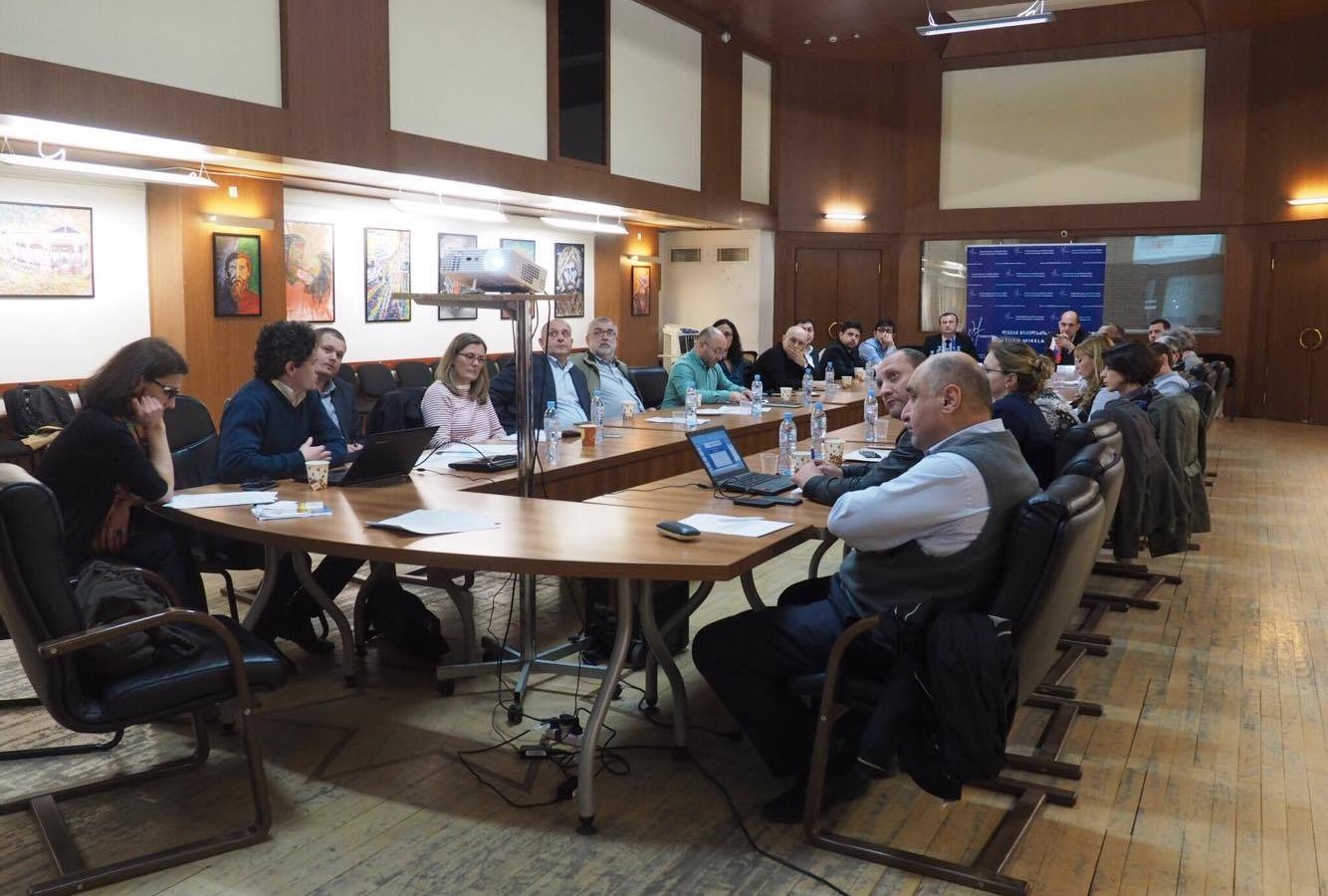On May 6, 2016 the Levan Mikeladze Foundation held the second meeting of Agriculture and Regional Development Working Group on the topic - “Rural Development Strategy”. The meeting was organized in the framework of the project - “National Convention on the EU in Georgia”. The project is carried out in partnership with the Slovak Foreign Policy Association (SFPA) and with the financial support of the Slovak Aid and Europe Foundation.
The meeting took place in the National Library of Georgia. It was chaired by Mr. Lasha Inauri, Deputy Head of Euro Integration Department of the Ministry of Agriculture of Georgia and by Mr. Ilia Kvitaishvili, founder of Rural and Agricultural Policy and Development Institute.
The working group was composed with representatives of government bodies, NGOs, diplomatic missions of various states and the Delegation of the European Union. In total, there were 21 organizations represented in the session.
During the Working Group meeting, two sets of recommendations, one drafted by Georgian expert Mr. Levan Dadiani and the second one prepared by Slovak expert, Mr. Vladimir were presented and discussed. In addition, a very informative and interesting presentation was done by the representative from The Food and Agriculture Organization of the United Nations (FAO), Mr. Javier Sanz Alvarez.
Mr. Alvarez discussed the role of FAO in regional development and the strategies that it uses. He talked about the local initiative groups, including the Working Group established in the Ministry of Agriculture of Georgia. He presented very detailed SWAT Analysis of current situation in regional development sector.
Mr. Dadiani further elaborated on trends existing in this particular sector and the obstacles that hinder smooth and effective regional development. With regard to this, he mentioned the relative poverty in rural areas, structural impediments to productive agriculture and the lack of skills as one of the main unresolved problems. Mr. Dadiani proposed the list of recommendations aimed at improving rural development strategy system.
The key findings and recommendations:
Policy level:
- Policy framework for rural development (strategy!);
- Key-definitions, indicators and statistics for policy making;
- coordinated approach to rural development measures (inter-ministry/agency coordination);
- clear segregation of duties, competencies and mandate for rural development by different line ministries or other state institutions;
- Clear coordination between policies on gender equality and previous policies on rural development.
Institutional level:
- Rural development unit at MoA (abstain from the establishing of LEPL, but functional division of MoA);
- Inter ministry/agency coordination body (‘’collegial organ - კოლეგიური ორგანო’’?)
- Support mechanisms for the development of local level entrepreneurship and local initiatives;
- Capacity building of stakeholders in the agriculture and rural sector, including non-governmental, private sector and local authorities;
- Capacity building of Government institutions to design and implement rural development approaches;
- Capacity enhancement in terms of infrastructure and human resources of extension services;
- Availability of local level initiatives or documents/strategies identifying gaps, priorities, and opportunities for development;
- Gender responsive budgeting and gender-mainstreaming through policy design and implementation.
